
Deir el Qamar: The Heartbeat of Lebanon's History
Deir el Qamar, a picturesque village nestled in the Chouf District of Lebanon, is a living testament to the country's rich and diverse history. Once the capital of Mount Lebanon, this charming town offers a unique blend of cultural heritage, stunning architecture, and breathtaking landscapes. The name 'Deir el Qamar' translates to 'Monastery of the Moon,' reflecting its serene and mystical ambiance. Strolling through the cobbled streets of Deir el Qamar, visitors are transported back in time. The town is adorned with well-preserved traditional Lebanese houses, grand palaces, and ancient churches. One of the most notable landmarks is the Fakhreddine Mosque, built in the early 16th century, which stands as a symbol of the town's religious tolerance and historical significance. The Emir Younes Maan Palace and the Marie Baz Museum further enrich the historical experience with their captivating exhibits and stories. Surrounded by lush greenery and overlooking the beautiful Chouf Mountains, Deir el Qamar is also a gateway to nature. Visitors can enjoy hiking trails, visit the nearby Beiteddine Palace, or simply relax and take in the panoramic views. The town’s vibrant festivals, such as the Deir el Qamar Festival, showcase local music, dance, and culinary delights, making it a must-visit destination for anyone looking to immerse themselves in Lebanese culture.
Local tips in Deir el Qamar
- Visit the Fakhreddine Mosque early in the morning to avoid crowds and fully appreciate its historical significance.
- Wear comfortable shoes for exploring the cobblestone streets and hilly terrain of Deir el Qamar.
- Take a guided tour to learn about the rich history behind the Emir Younes Maan Palace and other historic sites.
- Plan your trip during the Deir el Qamar Festival to experience local music, dance, and food.
- Bring a camera to capture the stunning views of the Chouf Mountains and the traditional Lebanese architecture.
- Don't miss a visit to the nearby Beiteddine Palace for a deeper dive into Lebanon's cultural and historical heritage.
Deir el Qamar: The Heartbeat of Lebanon's History
Deir el Qamar, a picturesque village nestled in the Chouf District of Lebanon, is a living testament to the country's rich and diverse history. Once the capital of Mount Lebanon, this charming town offers a unique blend of cultural heritage, stunning architecture, and breathtaking landscapes. The name 'Deir el Qamar' translates to 'Monastery of the Moon,' reflecting its serene and mystical ambiance. Strolling through the cobbled streets of Deir el Qamar, visitors are transported back in time. The town is adorned with well-preserved traditional Lebanese houses, grand palaces, and ancient churches. One of the most notable landmarks is the Fakhreddine Mosque, built in the early 16th century, which stands as a symbol of the town's religious tolerance and historical significance. The Emir Younes Maan Palace and the Marie Baz Museum further enrich the historical experience with their captivating exhibits and stories. Surrounded by lush greenery and overlooking the beautiful Chouf Mountains, Deir el Qamar is also a gateway to nature. Visitors can enjoy hiking trails, visit the nearby Beiteddine Palace, or simply relax and take in the panoramic views. The town’s vibrant festivals, such as the Deir el Qamar Festival, showcase local music, dance, and culinary delights, making it a must-visit destination for anyone looking to immerse themselves in Lebanese culture.
When is the best time to go to Deir el Qamar?
Iconic landmarks you can’t miss
Al Raouche Rocks
Discover Al Raouche Rocks, a breathtaking natural wonder and historical landmark in Beirut, where beauty, culture, and the sea meet in harmony.
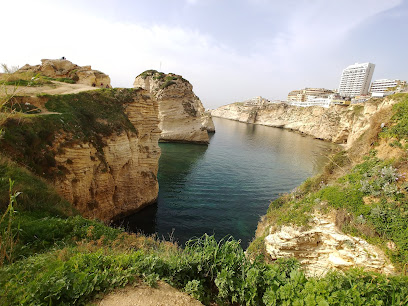
Beiteddine Palace
Explore the grandeur of Beiteddine Palace, a historical gem in Lebanon's Chouf Mountains, showcasing exquisite architecture and rich cultural heritage.
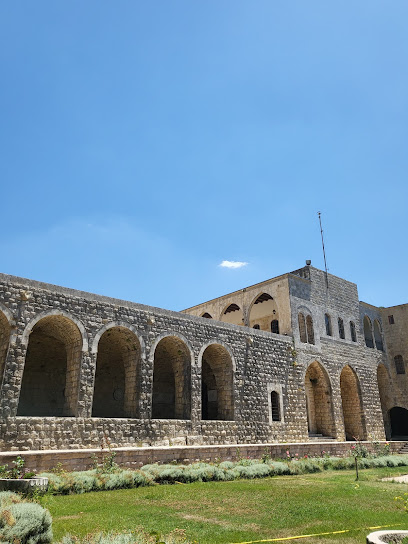
Moussa Castle
Explore Moussa Castle: A breathtaking blend of history, architecture, and nature in the heart of Lebanon, perfect for your travel adventures.
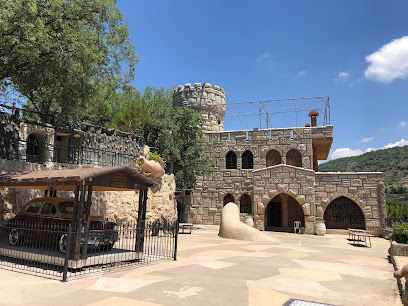
Deir Taanayel - ND de la Consolation
Experience spiritual tranquility and natural beauty at Deir Taanayel - ND de la Consolation, a serene church and retreat center in Taanayel, Lebanon.
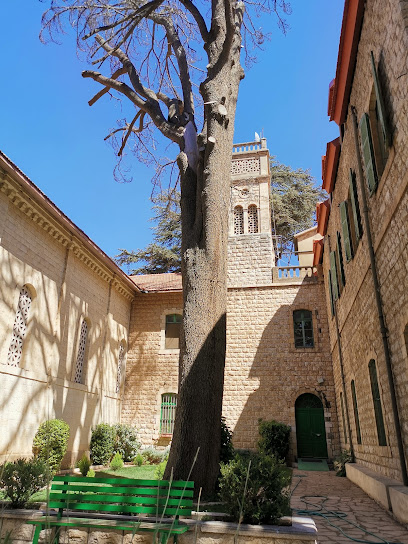
Mir Amin Palace - قصر الامير أمين
Experience luxury and history at Mir Amin Palace, a stunning hotel in Beit ed-Dine that offers a perfect blend of traditional charm and modern amenities.

Deir al Oumara
Experience the charm of Deir al Oumara, where comfort meets exquisite Lebanese dining in the heart of Chouf's cultural heritage.

مغارة كفرحيم
Explore Kfardebian: A picturesque gem in Deir El Qamar offering stunning landscapes, rich cultural heritage, and serene experiences for every traveler.
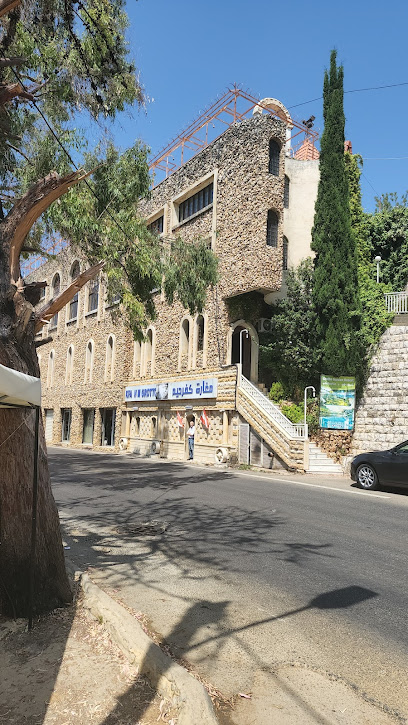
Beit El Qamar
Experience the warmth of Lebanese hospitality at Beit El Qamar, a charming bed & breakfast in the heart of Deir El Qamar, surrounded by rich history and stunning landscapes.
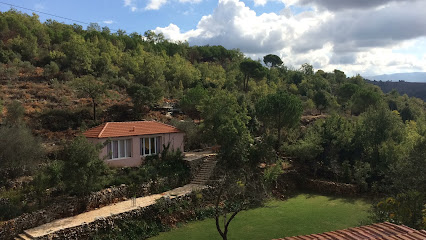
Beyt el Jabal - Guesthouse
Discover the enchanting Beyt el Jabal in Deir El Qamar, where Lebanese hospitality meets stunning mountain views and authentic cuisine.
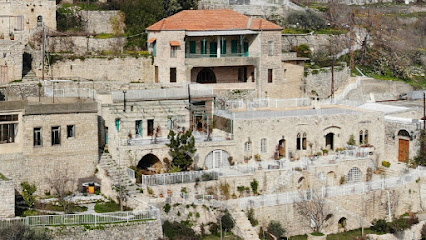
Al Midan (Dany Chamoun) Square
Discover the charm and history of Al Midan Square in Deir El Qamar, a captivating destination steeped in Lebanese culture and heritage.
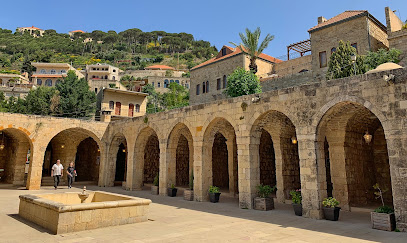
Fakher El Dine Ii Le Grand Castle
Explore the majestic Fakher El Dine II Le Grand Castle in Deir El Qamar, a historical treasure showcasing Lebanon's rich heritage and stunning architecture.
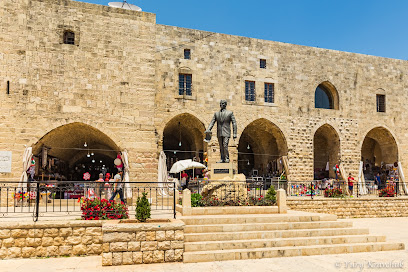
Atelier Assaf
Discover the artistic spirit of Lebanon at Atelier Assaf, a museum where creativity and culture intertwine in a breathtaking setting.
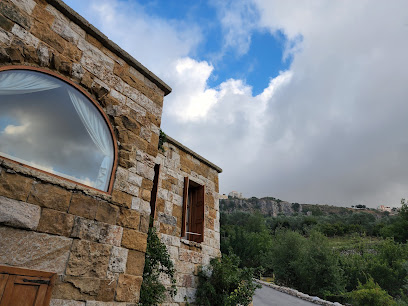
Deir el kalaa
Explore Deir el Kalaa: A captivating museum in Beit Meri, Lebanon, showcasing rich history and stunning artifacts amid breathtaking views.
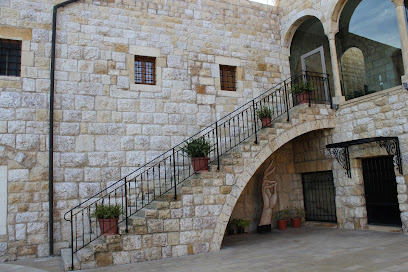
Al Midane Café Restaurant
Experience the essence of Lebanese hospitality at Al Midane Café Restaurant, a culinary gem in Deir El Qamar with traditional flavors and charming ambiance.
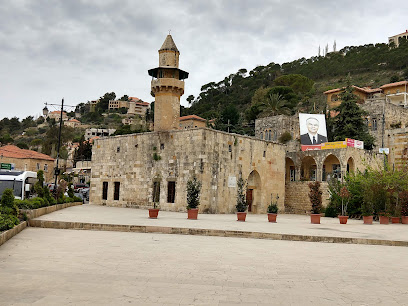
Marie Baz Museum
Explore Lebanon's rich cultural heritage at the Marie Baz Museum in Deir El Qamar, a treasure trove of history and tradition waiting to be discovered.
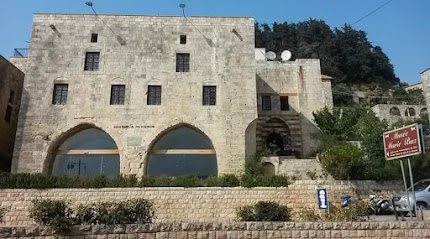
Unmissable attractions to see
Zaituna Bay
Experience the vibrant atmosphere of Zaituna Bay, Beirut's stunning marina featuring exquisite dining, shopping, and breathtaking views.
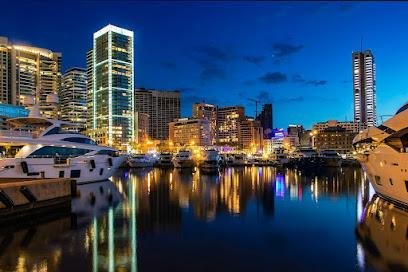
Al Raouche Rocks
Explore Al Raouche Rocks, Beirut's iconic limestone formations, where nature meets history in a breathtaking coastal setting.
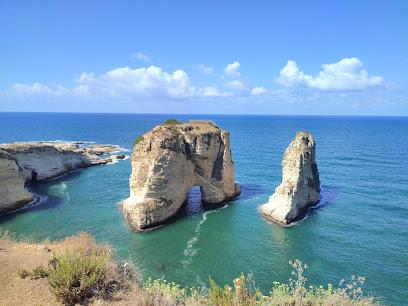
Jeita Grotto
Experience the breathtaking Jeita Grotto, Lebanon's stunning limestone caves and a UNESCO World Heritage candidate, where nature's artistry awaits.
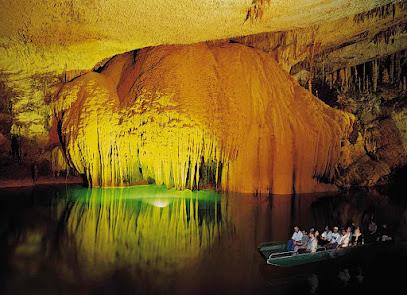
Our Lady of Lebanon بازيليك سيدة لبنان
Discover the serene beauty and cultural significance of Our Lady of Lebanon, a majestic shrine offering breathtaking views and spiritual reflection.
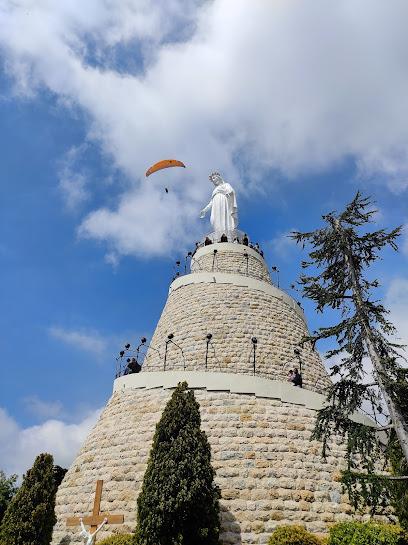
Teleferique du Liban
Experience breathtaking views and adventure at Teleferique du Liban, the iconic mountain cable car that showcases Lebanon's natural beauty.
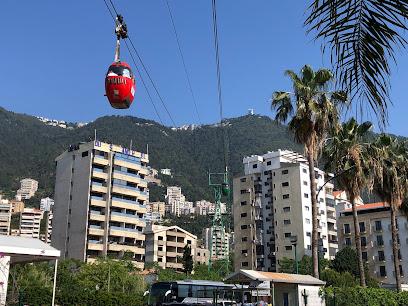
Byblos Citadel
Discover the ancient wonders of Byblos Citadel, where history meets breathtaking views in Lebanon's timeless coastal gem.
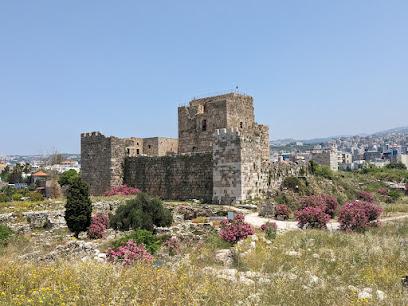
Sidon Sea Castle
Explore the historical Sidon Sea Castle, a Crusader-era fortress offering stunning coastal views and a window into Lebanon's rich maritime history.
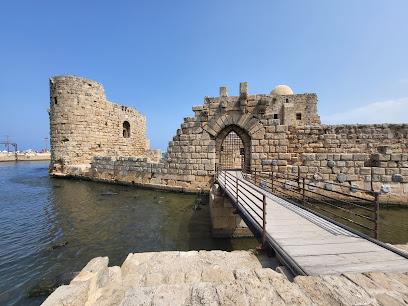
Mohammad Al Amin Mosque
Discover the architectural splendor of the Mohammad Al Amin Mosque in Beirut, a stunning blend of spirituality and artistry that captivates every visitor.
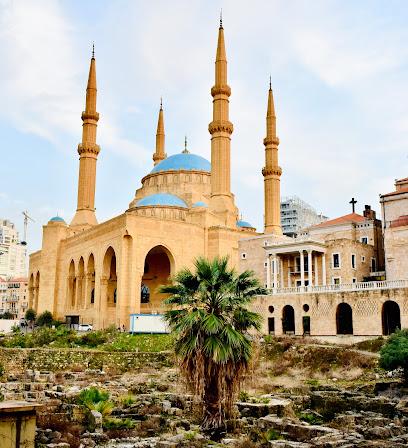
National Museum of Beirut
Discover the rich heritage of Lebanon at the National Museum of Beirut, where history comes alive through remarkable artifacts and exhibits.
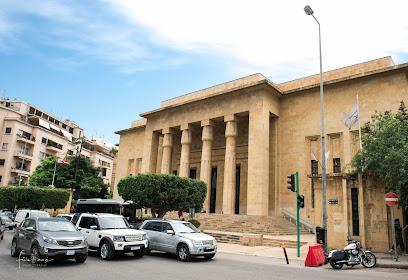
The Old Souq
Discover the rich history and vibrant culture of Byblos at the Old Souq, where tradition meets modernity in a captivating marketplace experience.
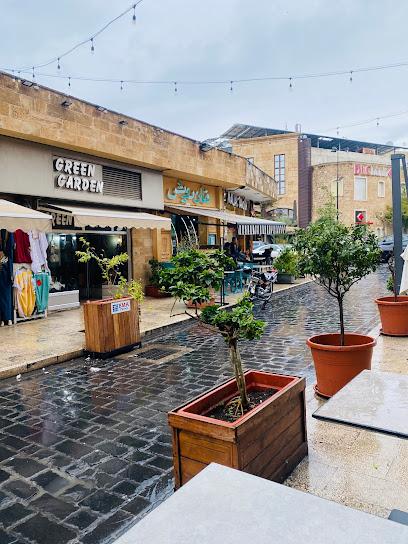
Casino du Liban
Dive into the vibrant atmosphere of Casino du Liban, where luxury gaming meets exquisite dining and captivating entertainment in Jounieh.
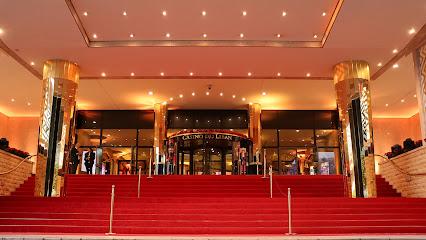
Moussa Castle
Explore Moussa Castle, a stunning historical landmark in Lebanon, offering rich heritage, breathtaking views, and a unique journey through time.
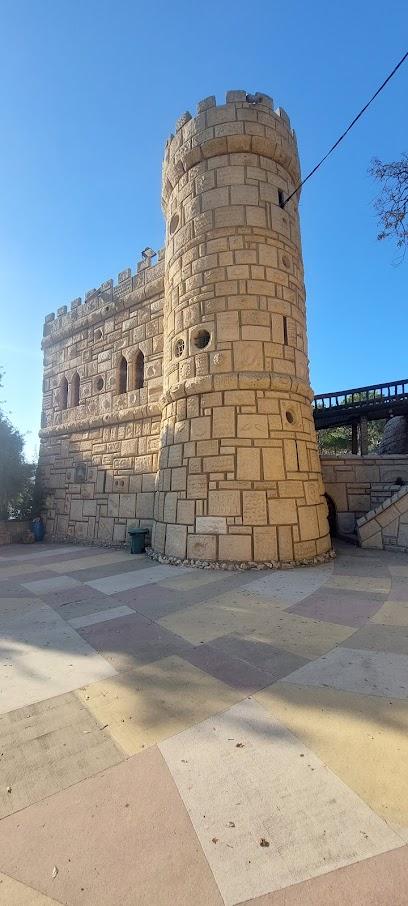
Corniche El Manara, Ain El Mraiseh
Explore the scenic beauty and vibrant culture of Corniche El Manara, a must-visit promenade along Beirut's Mediterranean coast.
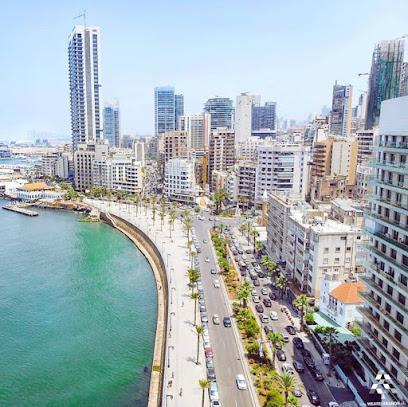
Nicolas Sursock Museum
Experience the rich cultural tapestry of Lebanon at the Nicolas Sursock Museum, a premier destination for contemporary and modern art lovers in Beirut.
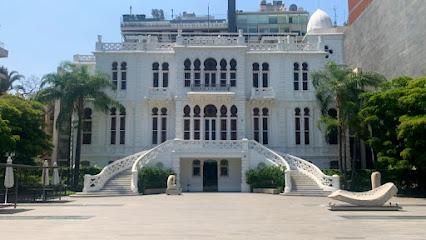
Jezzine Waterfall
Experience the breathtaking beauty of Jezzine Waterfall, a natural wonder in Lebanon that captivates with its serene ambiance and stunning landscapes.
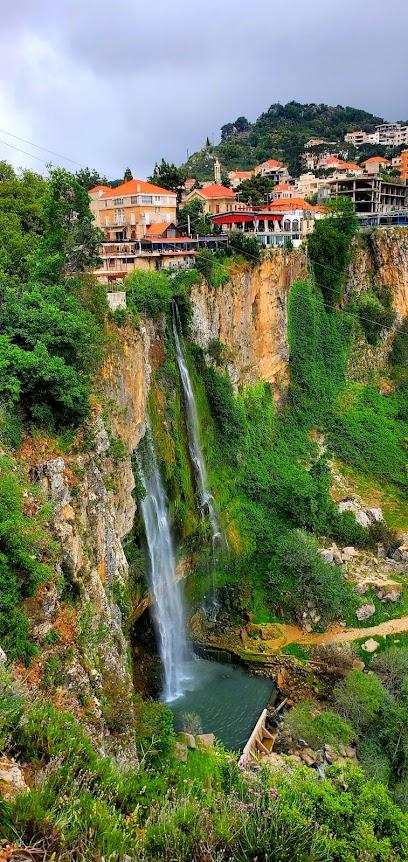
Essential places to dine
Al Sakhra - Cliff House - مطعم الصخرة
Experience exquisite Lebanese cuisine at Al Sakhra in Chemlan—where breathtaking views meet culinary delights.
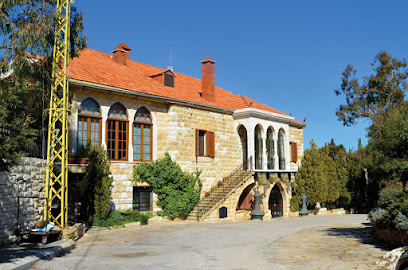
Deir al Oumara
Discover authentic Lebanese hospitality at Deir al Oumara, where breathtaking views meet exquisite cuisine in the heart of Chouf.

Beyt el Jabal - Guesthouse
Discover authentic Lebanese cuisine and warm hospitality at Beyt el Jabal in Deir El Qamar – your gateway to cultural charm and stunning landscapes.
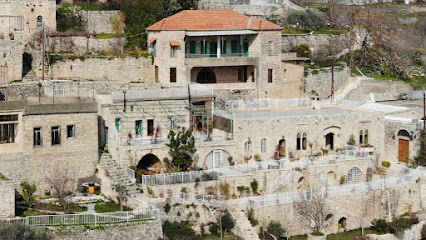
Maestro Resto Cafe
Discover authentic Lebanese flavors at Maestro Resto Cafe in Baakleen - where culinary artistry meets warm hospitality.
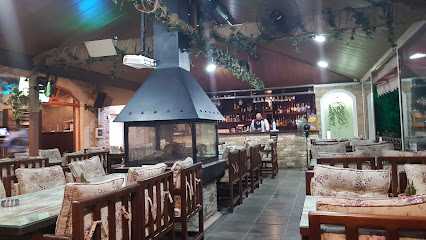
Coara Restaurant
Discover authentic Lebanese cuisine at Coara Restaurant in Kfar Qatra - where tradition meets taste in a cozy setting.
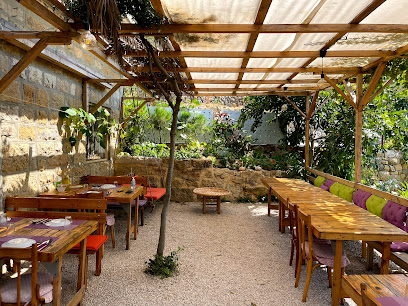
Serail El Bek - Restaurant
Experience authentic Lebanese cuisine at Serail El Bek in Deir El Qamar – where every dish tells a story of tradition and flavor.
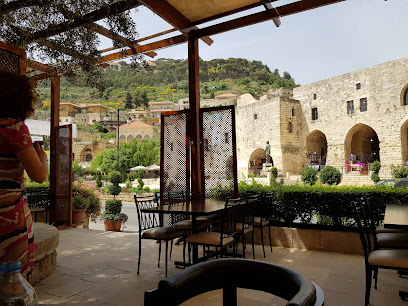
Bacha Resort
Discover the flavors of Lebanon at Bacha Resort in Deir El Qamar—where exquisite dining meets breathtaking views by an outdoor pool.
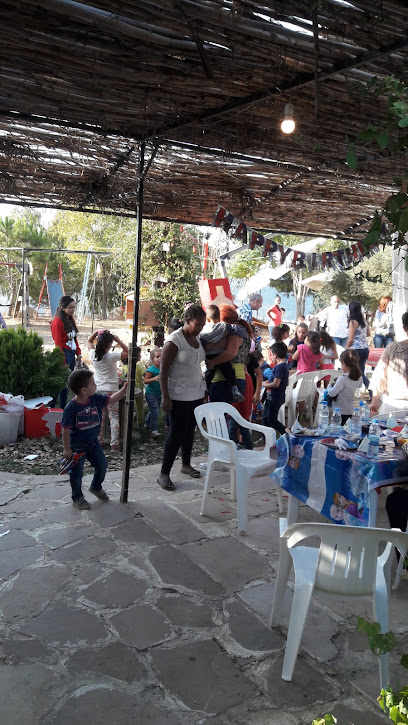
SIGHT - Deir El Qamar
Experience the best of Lebanese cuisine and nightlife at SIGHT - Deir El Qamar's premier restaurant and lounge destination.
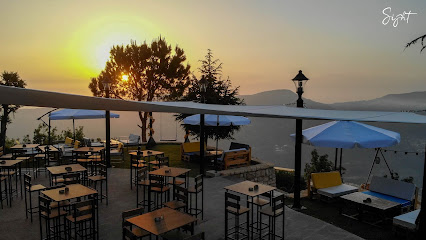
Un basilico
Experience authentic Italian cuisine at Un Basilico in Baakleen - where every dish tells a story.
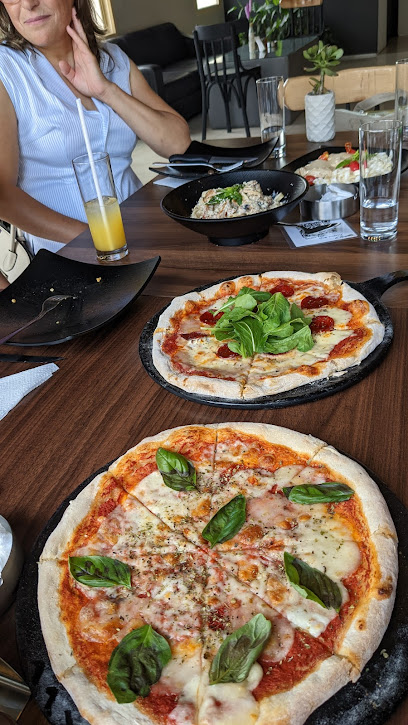
Restaurant Amare
Experience authentic Lebanese cuisine amidst breathtaking landscapes at Restaurant Amare in Deir El Qamar.
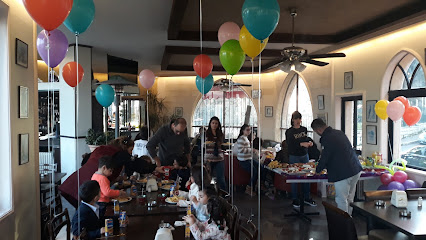
J.O'S House of Subs, Inc.
Experience authentic Lebanese sandwiches and healthy meals at J.O'S House of Subs in Baakleen - a culinary gem for every tourist!
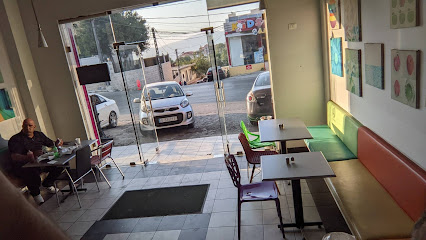
Token, burgers and more
Discover Token in Deir El Qamar: where delicious burgers meet Lebanese hospitality in an inviting atmosphere.
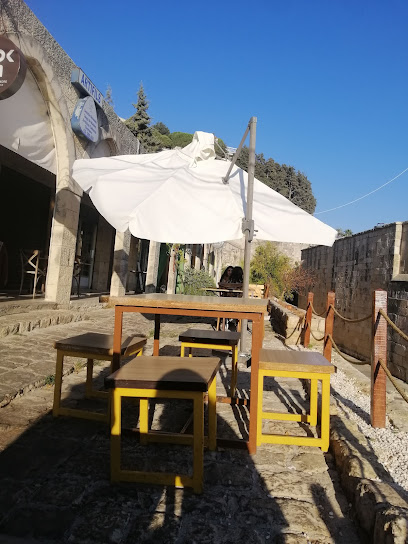
Diwan al farah restaurant
Experience the essence of Lebanon at Diwan al Farah Restaurant in Beit ed-Dine, where traditional flavors meet warm hospitality.
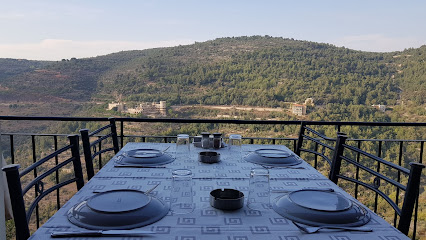
Jannat Al Nahrayn
Experience authentic Lebanese cuisine amidst stunning landscapes at Jannat Al Nahrayn in Rechmaya.
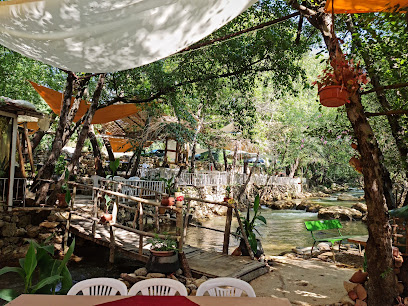
Beyt el Jabal - Restaurant
Discover authentic Lebanese flavors amidst stunning views at Beyt el Jabal in Deir El Qamar.
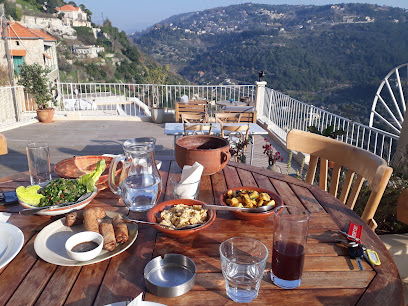
Markets, malls and hidden boutiques
Beit El Qamar
Experience the charm of Deir El Qamar at Beit El Qamar, where cozy accommodation meets authentic Lebanese hospitality.
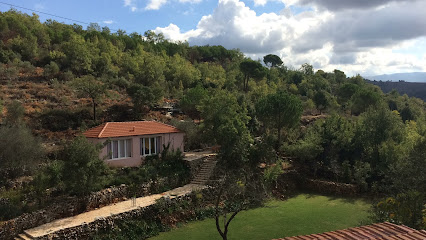
Al Midan (Dany Chamoun) Square
Discover the charm of Al Midan Square, a historical landmark in Deir El Qamar, rich in culture and architectural beauty.
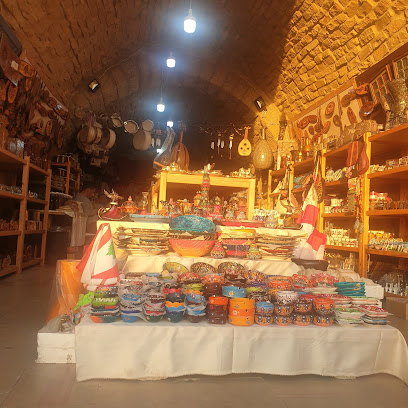
Deir El Qamar guest house
Experience the warmth of Deir El Qamar at the charming guest house, a perfect blend of local culture and modern comfort.
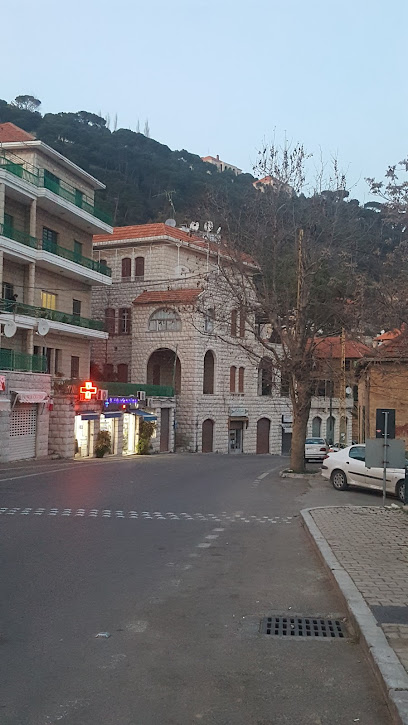
Khattar Supermarket
Explore Khattar Supermarket in Deir El Qamar for a unique shopping experience filled with local flavors and fresh produce.
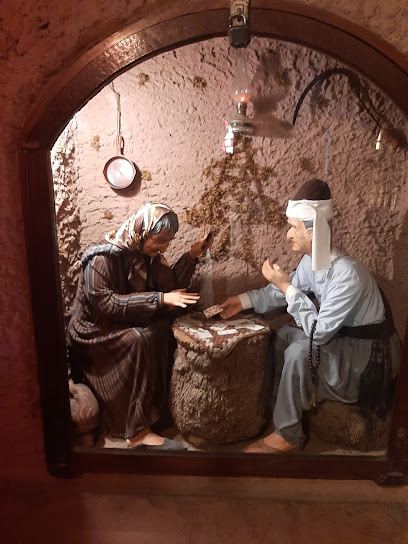
Crispa LB
Discover Crispa LB, a charming crêperie in Deir El Qamar offering mouthwatering crêpes and refreshing juices in a cozy setting.
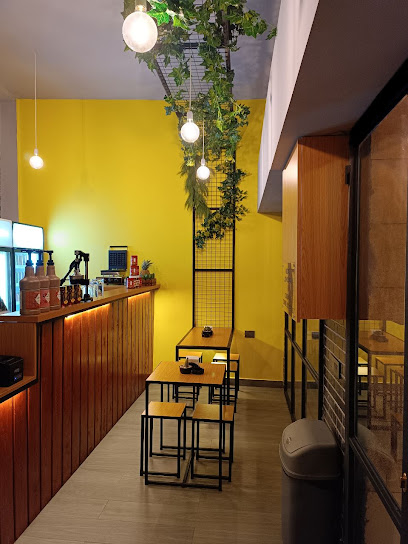
Paradise Four Manakish Bakery
Discover the authentic taste of Lebanon at Paradise Four Manakish Bakery in Deir El Qamar, where tradition meets deliciousness.
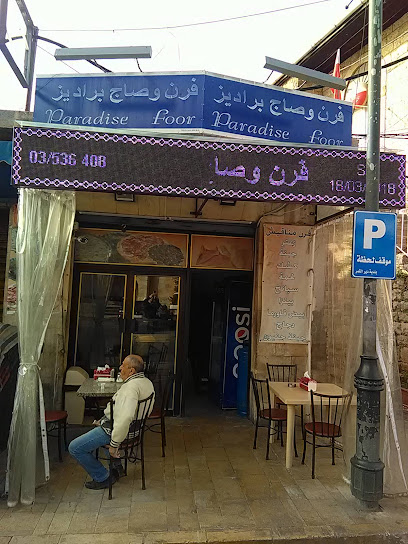
deir el qamar GuestHouse Suiteness
Discover the charm of Deir El Qamar at the GuestHouse Suiteness, where comfort meets authentic Lebanese hospitality in a stunning setting.
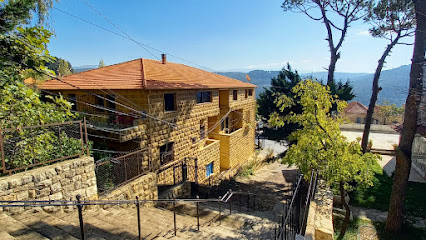
Le Cremier Deir El Qamar
Discover the artisanal ice cream experience at Le Cremier Deir El Qamar, where local flavors and quality meet in a delightful setting.
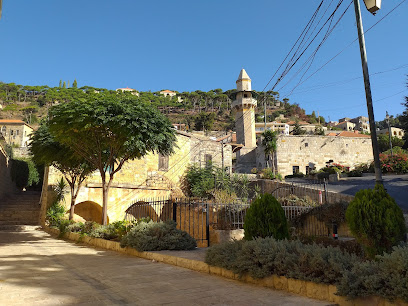
Bachir Ice cream
Discover the sweet side of Deir El Qamar at Bachir Ice Cream, where every scoop is a taste of delight crafted with artisanal flair.
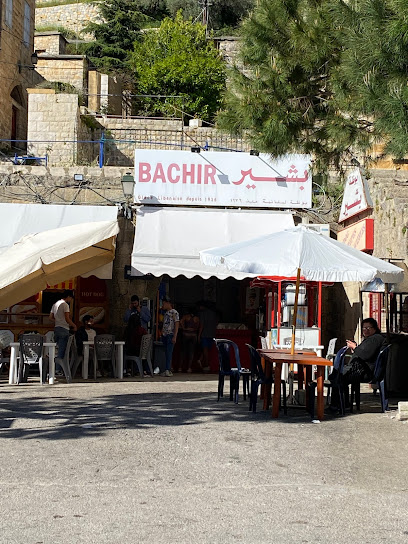
Zoe - Haddad Market
Experience the vibrant culture and unique offerings at Zoe - Haddad Market in Deir El Qamar, a must-visit for authentic Lebanese treasures.
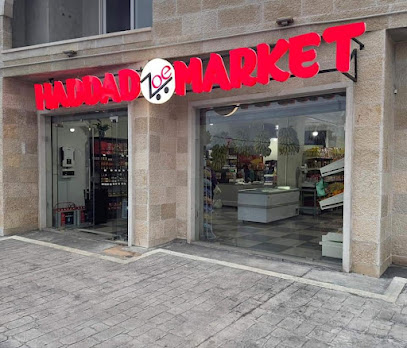
Special Lady Boutique
Explore stylish clothing and unique accessories at Baakleen's Special Lady Boutique, where fashion meets elegance in a delightful shopping experience.
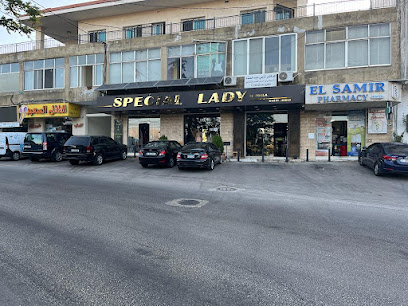
Germanos Pharmacy Deir el Qamar
Discover Germanos Pharmacy in Deir el Qamar: A blend of health services and local charm in Lebanon's historic village.
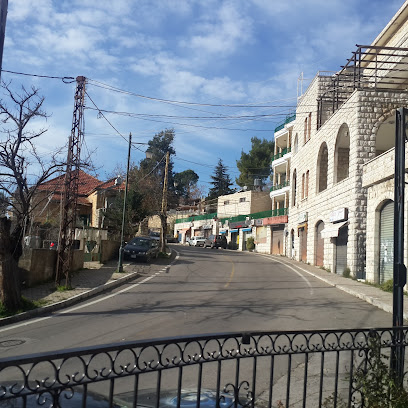
Brune Cafe
Discover the exquisite flavors of Lebanese coffee at Brune Cafe, a delightful spot in the heart of Deir El Qamar, perfect for relaxation and connection.
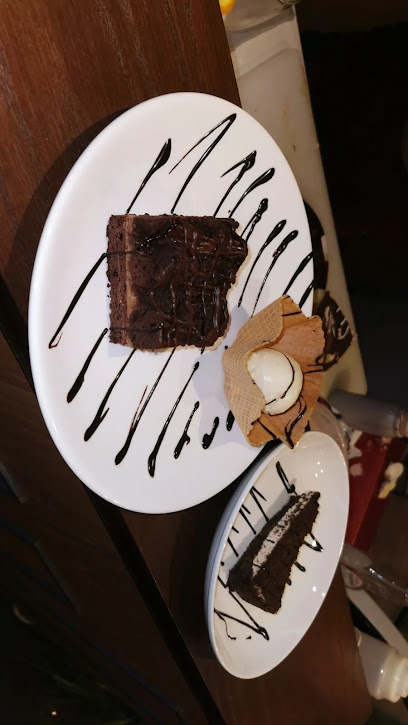
Maroun Bakery (Paradise)
Discover the vibrant flavors of Lebanon at Maroun Bakery in Deir El Qamar, where every bite tells a delicious story of tradition and craftsmanship.

Saj Nazira, صاج نظيرة
Discover the authentic taste of Lebanese baked goods at Saj Nazira in Deir El Qamar, where tradition meets deliciousness.
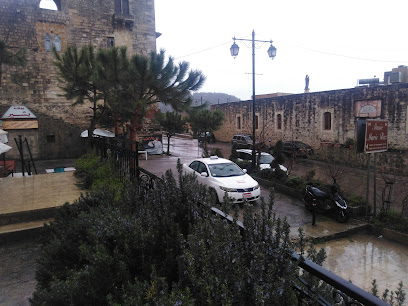
Essential bars & hidden hideouts
Deir al Oumara
Discover the historical beauty and authentic Lebanese flavors at Deir al Oumara in Deir al Qamar, a perfect getaway for travelers.

Lavender Getaway
Discover a tranquil dining experience at Lavender Getaway, where exquisite cuisine meets the serene beauty of lavender fields in Kfarqatra.
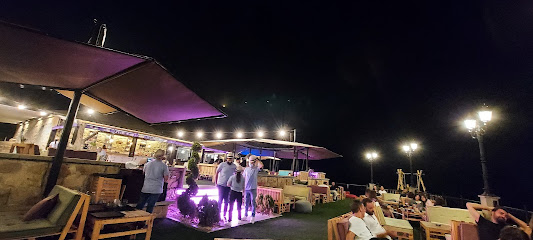
Serail El Bek - Restaurant
Experience authentic Lebanese cuisine at Serail El Bek, nestled in the beautiful Deir El Qamar, where tradition meets taste.
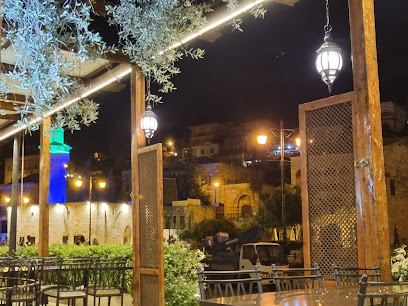
Bacha Resort
Discover the flavors of Lebanon at Bacha Resort, a delightful restaurant with an inviting swimming pool set in the scenic Deir El Qamar.
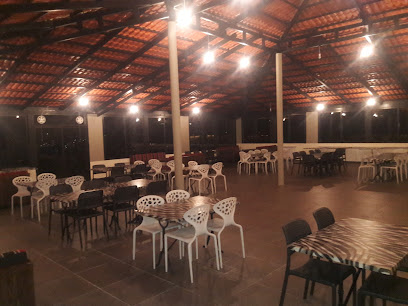
SIGHT - Deir El Qamar
Experience the lively nightlife of Deir El Qamar at SIGHT, your destination for fantastic cocktails, music, and unforgettable moments.
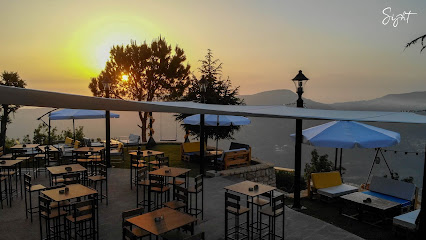
Restaurant Amare
Experience the essence of Lebanese cuisine at Restaurant Amare in the scenic hills of Deir El Qamar, where every meal tells a story.
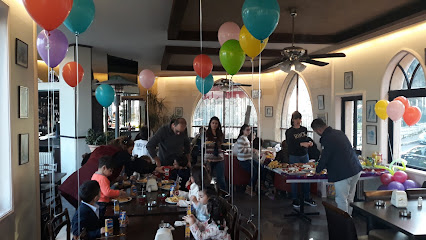
Token, burgers and more
Discover Token in Deir El Qamar for gourmet burgers that fuse local flavors with modern culinary creativity, in a cozy and inviting atmosphere.
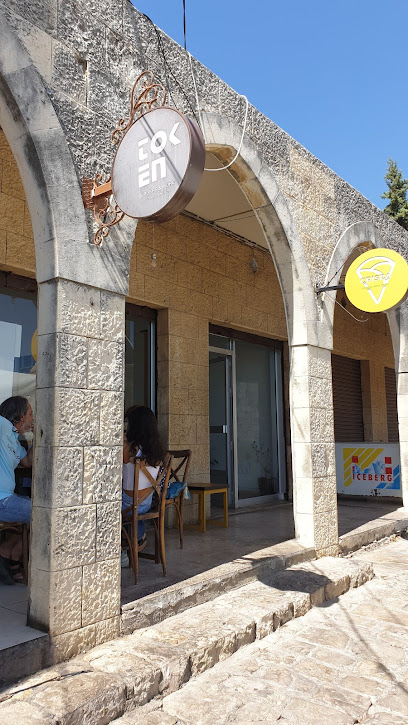
Beyt el Jabal - Restaurant
Discover the essence of Lebanese cuisine at Beyt el Jabal, where traditional flavors meet stunning views in Deir El Qamar.
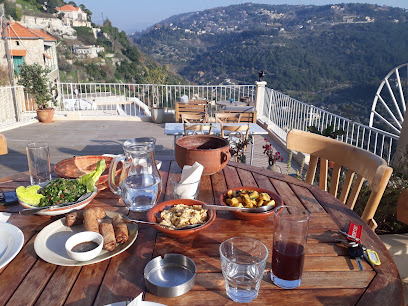
الميدان
Experience authentic Lebanese flavors at Al-Midan, a delightful restaurant in the heart of Deir El Qamar, perfect for travelers seeking a taste of local cuisine.
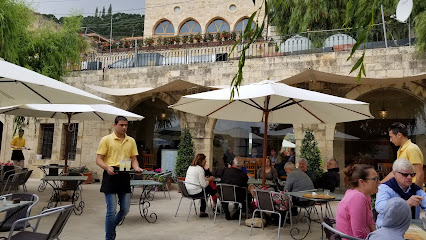
Mouawad Bakery And Rest
Discover the authentic taste of Lebanon at Mouawad Bakery and Rest in Deir El Qamar, where traditional recipes and warm hospitality unite.
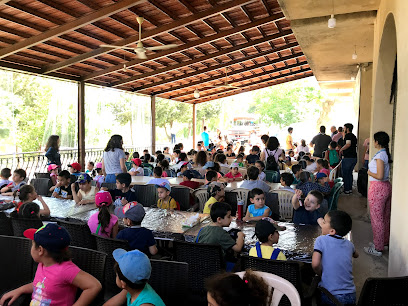
Gardenia - Restaurant
Experience authentic Lebanese flavors at Gardenia Restaurant in Deir El Qamar, where culinary tradition meets stunning scenery.
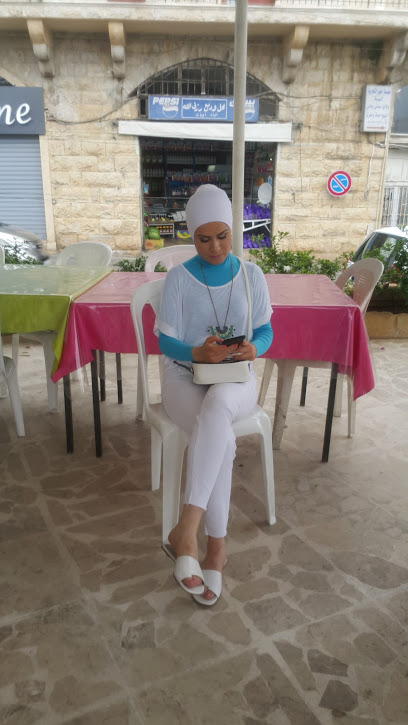
La2mit Em - Restaurant
Experience authentic Lebanese cuisine at La2mit Em in Deir El Qamar, where tradition meets culinary excellence in a charming setting.
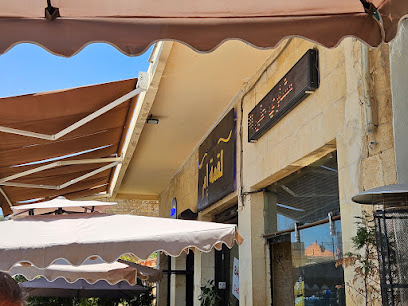
Moon Hill Restaurant
Experience the best of Lebanese cuisine at Moon Hill Restaurant, where breathtaking views meet exquisite flavors in a perfect dining setting.
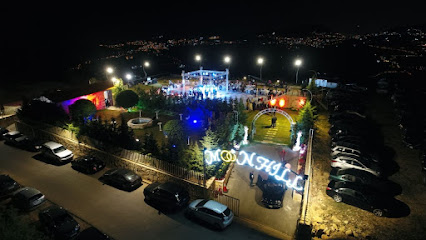
O Nature
Experience the serenity of O Nature in Deir El Qamar, Lebanon's hidden gem for cultural immersion and natural beauty.

Local Phrases
-
- Helloمرحبا
[marhaba] - Goodbyeوداعا
[wadaan] - Yesنعم
[naam] - Noلا
[laa] - Please/You're welcomeمن فضلك
[min fadlak] - Thank youشكرا لك
[shukran lak] - Excuse me/Sorryعذرا
[azraan] - How are you?كيف حالك؟
[kayf halak?] - Fine. And you?بخير. وأنت؟
[bukhayr. wa anta?] - Do you speak English?هل تتكلم الإنجليزية؟
[hal tatakallam al-ingliziyya?] - I don't understandأنا لا أفهم
[ana la afham]
- Helloمرحبا
-
- I'd like to see the menu, pleaseأريد أن أرى القائمة، من فضلك
[urid an ara al-qaaima, min fadlak] - I don't eat meatأنا لا آكل اللحم
[ana la aakul al-lahm] - Cheers!صحتين!
[sahhtayn!] - I would like to pay, pleaseأود أن أدفع، من فضلك
[awad an adfaa, min fadlak]
- I'd like to see the menu, pleaseأريد أن أرى القائمة، من فضلك
-
- Help!النجدة!
[al-najda!] - Go away!انصرف!
[insraf!] - Call the Police!اتصل بالشرطة!
[itassal bialshurta!] - Call a doctor!اتصل بطبيب!
[itassal bitabib!] - I'm lostأنا ضائع
[ana daa'ee] - I'm illأنا مريض
[ana mareed]
- Help!النجدة!
-
- I'd like to buy...أريد أن أشتري...
[urid an ashtari...] - I'm just lookingأنا فقط أتفرج
[ana faqat atfarrag] - How much is it?بكم هذا؟
[bi kam hadha?] - That's too expensiveهذا غالي جدا
[hadha ghali jiddan] - Can you lower the price?هل يمكنك خفض السعر؟
[hal yumkinuk khaff al-sa'ar?]
- I'd like to buy...أريد أن أشتري...
-
- What time is it?كم الساعة؟
[kam al-saa'a?] - It's one o'clockالساعة الواحدة
[al-saa'a al-wahida] - Half past (10)الساعة العاشرة والنصف
[al-saa'a al-ashira w al-nisf] - Morningالصباح
[al-sabah] - Afternoonالظهر
[al-thuhr] - Eveningالمساء
[al-masaa] - Yesterdayأمس
[ams] - Todayاليوم
[al-yawm] - Tomorrowغدا
[ghadan] - 1واحد
[wahed] - 2اثنان
[ithnaan] - 3ثلاثة
[thalaatha] - 4أربعة
[arbaa] - 5خمسة
[khamsa] - 6ستة
[sitta] - 7سبعة
[sabaa] - 8ثمانية
[thamaaniya] - 9تسعة
[tisa'a] - 10عشرة
[ashara]
- What time is it?كم الساعة؟
-
- Where's a/the...?أين ...؟
[ayn ...?] - What's the address?ما هو العنوان؟
[ma huwa al-unaan?] - Can you show me (on the map)?هل يمكنك أن تريني (على الخريطة)؟
[hal yumkinuk an tarini (ala al-kharita)?] - When's the next (bus)?متى الحافلة التالية؟
[mata al-haafila al-taalia?] - A ticket (to ....)تذكرة (إلى ...)
[tazkira (ila ...)]
- Where's a/the...?أين ...؟
History of Deir el Qamar
-
Deir el Qamar, meaning 'Monastery of the Moon', has roots that trace back to the Roman period. It was during this time that the village began to develop around a Christian monastery. The town's strategic location in the Chouf Mountains made it a natural hub for trade and culture, blending various influences over the centuries.
-
During the Ottoman era, Deir el Qamar flourished as the seat of the Emirate of Mount Lebanon. Under the leadership of Emir Fakhreddine II in the 17th century, the town saw a golden age of prosperity and architectural development. Fakhreddine II built palaces, administrative buildings, and fostered a climate of religious tolerance, making Deir el Qamar a cosmopolitan hub.
-
Deir el Qamar has historically been a symbol of religious coexistence, particularly between the Maronite Christians and the Druze community. The town's famous Church of Saydet El Talle and its numerous Druze maqams (shrines) stand as testaments to this peaceful cohabitation. This unique blend of cultures is reflected in the town's architecture and community life.
-
The Lebanese Civil War (1975-1990) brought significant turmoil to Deir el Qamar. The town was heavily impacted during the conflict, leading to a period of decline and depopulation. Many of its historic buildings suffered damage, and the once-thriving cultural life was disrupted.
-
In recent years, Deir el Qamar has seen a resurgence. Restoration projects have revitalized its historic buildings, and it has become a popular destination for tourists seeking to explore Lebanon's rich heritage. The town now hosts cultural festivals, markets, and events that celebrate its unique history and traditions, drawing visitors from around the world.
Deir el Qamar Essentials
-
Deir el Qamar is located in the Chouf District of Lebanon. The nearest international airport is Beirut-Rafic Hariri International Airport, approximately 40 kilometers away. From Beirut, you can take a taxi or arrange for a private car service directly to Deir el Qamar. The journey typically takes around 1 to 1.5 hours by road. Public buses also operate from Beirut to Deir el Qamar, offering a more economical option.
-
Deir el Qamar is a small town, and many of its attractions are within walking distance. Taxis are readily available for longer trips and are relatively inexpensive compared to Western standards. Public buses and minibuses connect Deir el Qamar to nearby towns and villages. Renting a car can also be a convenient option if you plan to explore the surrounding Chouf region at your own pace.
-
The official currency in Lebanon is the Lebanese Pound (LBP), also known as the Lira. US dollars are widely accepted, and many prices are listed in both currencies. Credit cards are accepted in most hotels, restaurants, and shops, but it is advisable to carry some cash for smaller establishments and markets. ATMs are available in Deir el Qamar, but ensure you have enough cash for your needs, especially if venturing into more rural areas.
-
Deir el Qamar is generally a safe destination for tourists. However, like any travel destination, it is advisable to take standard precautions. Avoid walking alone at night in unfamiliar areas and keep an eye on your belongings in crowded places. While Deir el Qamar itself does not have high-crime areas targeting tourists, it is always best to remain vigilant and aware of your surroundings.
-
In case of emergency, dial 112 for police assistance or 140 for medical emergencies. The local police station and medical facilities are available in Deir el Qamar. It is recommended to have travel insurance that covers medical emergencies. For minor health issues, there are pharmacies in the town where you can purchase over-the-counter medications.
-
Fashion: Do dress modestly, especially when visiting religious sites. Avoid wearing revealing clothing. Religion: Do respect local customs and traditions. Always cover your head when entering churches and mosques. Public Transport: Do be respectful and give up your seat to elderly passengers. Don’t eat or drink on public transport. Greetings: Do greet people with a handshake or a slight nod. A warm smile goes a long way. Eating & Drinking: Do try local delicacies and accept food offerings graciously. Don’t refuse hospitality, as it is considered impolite.
-
To experience Deir el Qamar like a local, visit the local souks where you can buy fresh produce and traditional Lebanese goods. Engage with locals, as they are often friendly and willing to share stories about the town's history and culture. Don’t miss visiting the Fakhreddine Mosque, the 15th-century palace of Emir Fakhreddine, and the Notre-Dame de la Montagne Church. For a unique experience, attend local festivals and events that showcase traditional music, dance, and cuisine.
Trending Landmark in Deir el Qamar
-
Al Raouche Rocks
-
Beiteddine Palace
-
Moussa Castle
-
Deir Taanayel - ND de la Consolation
-
Mir Amin Palace - قصر الامير أمين
-
Deir al Oumara
-
مغارة كفرحيم
-
Beit El Qamar
-
Beyt el Jabal - Guesthouse
-
Al Midan (Dany Chamoun) Square
-
Fakher El Dine Ii Le Grand Castle
-
Atelier Assaf
-
Deir el kalaa
-
Al Midane Café Restaurant
-
Marie Baz Museum
Nearby Cities to Deir el Qamar
-
Things To Do in Aley
-
Things To Do in Broummana
-
Things To Do in Beirut
-
Things To Do in Sidon
-
Things To Do in Jounieh
-
Things To Do in Rashaya
-
Things To Do in Anjar
-
Things To Do in Zahle
-
Things To Do in Marjayoun
-
Things To Do in Byblos
-
Things To Do in Tyre
-
Things To Do in Batroun
-
Things To Do in Baalbek
-
Things To Do in Bcharre
-
Things To Do in Rosh HaNikra








